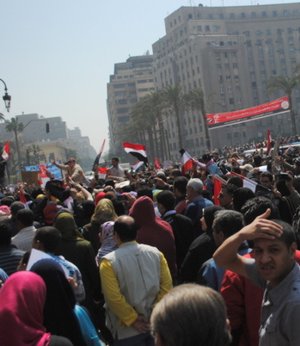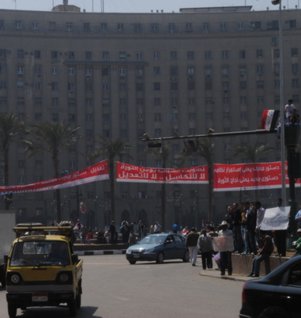|
Egypt Politics Egyptians split on Saturday's referendum
The pro-democracy movement in Egypt, as on every Friday, is gathering on Tahrir Sqaure to assure that the people's voice is heard as the military junta now ruling the country is preparing a democratic transition.
Despite the vehement opposition to the referendum by the pro-democracy activists, it is widely expected that Egypt's over 40 million voters will stream to the ballot tomorrow in their first-ever opportunity to freely express their opinion. Most welcome the event, and in particular in rural areas, an ample "yes" vote is expected. The constitutional changes votes over tomorrow are minor, according to the ruling Supreme Council of the Armed Forces. There are only amendments to the current constitution, which for example will allow for a broader specter of presidential candidates in the upcoming election; will limit presidential terms; and will secure free and fair elections. Many Egyptians are expressing their enthusiasm for the careful constiutional reforms, seeing it as a first, important step towards true democracy in the country. Further reforms would need to be made by a democratically election government, they hold. Pro-democracy activists however do not agree, holding that the Egyptian revolution was calling for an entirely new constitution, to be defined in a broad dialogue between authorities and civil society. By staff writers © afrol News - Create an e-mail alert for Egypt news - Create an e-mail alert for Politics news
On the Afrol News front page now
|
front page
| news
| countries
| archive
| currencies
| news alerts login
| about afrol News
| contact
| advertise
| español
©
afrol News.
Reproducing or buying afrol News' articles.
You can contact us at mail@afrol.com









